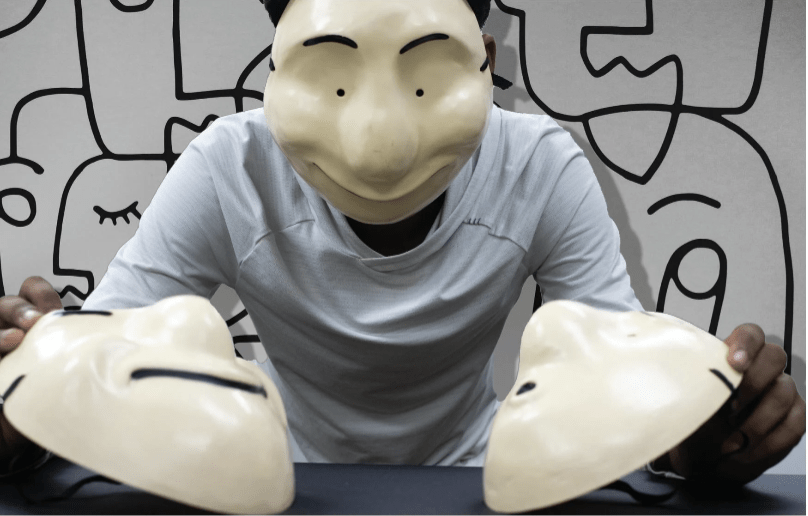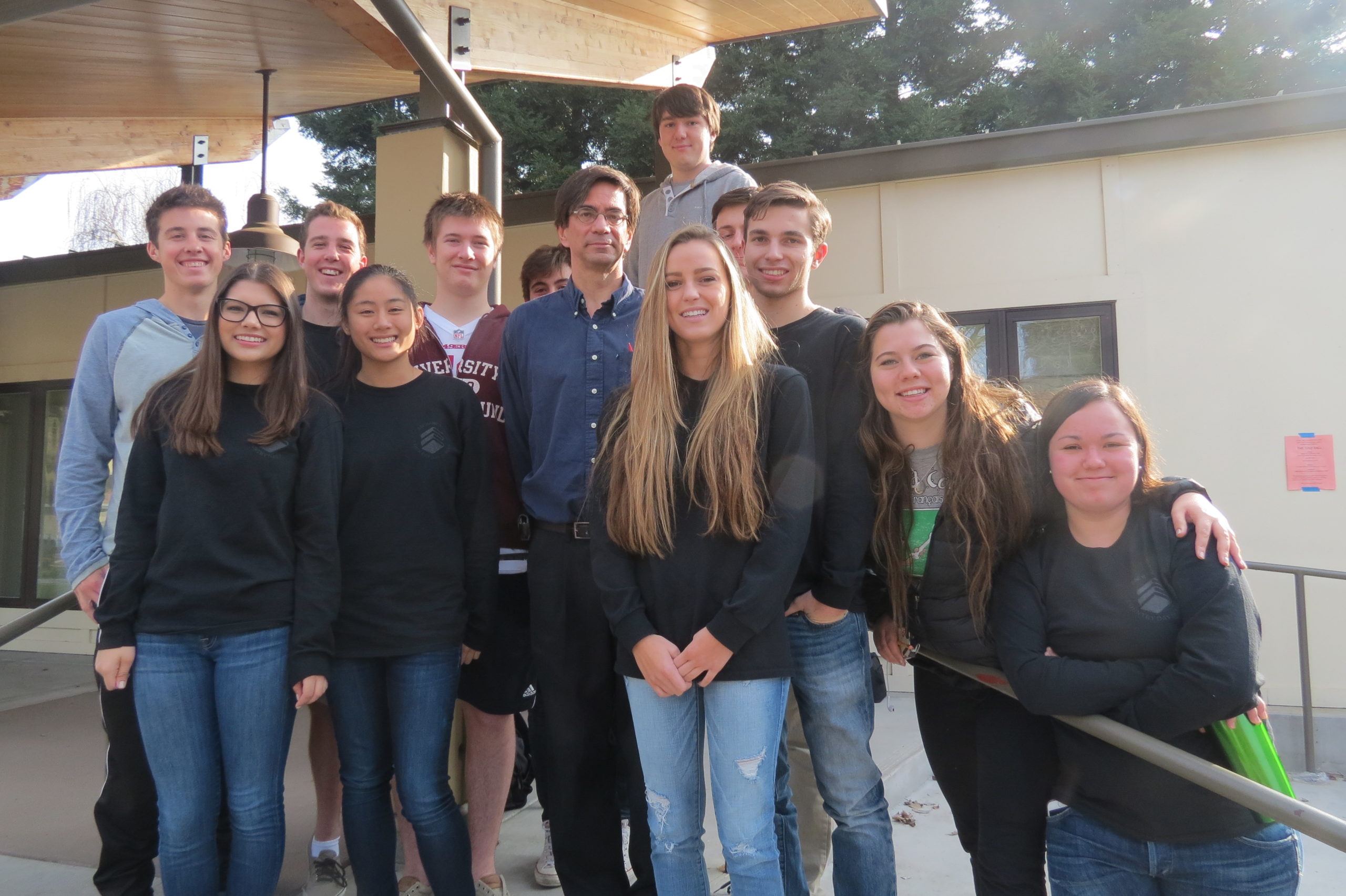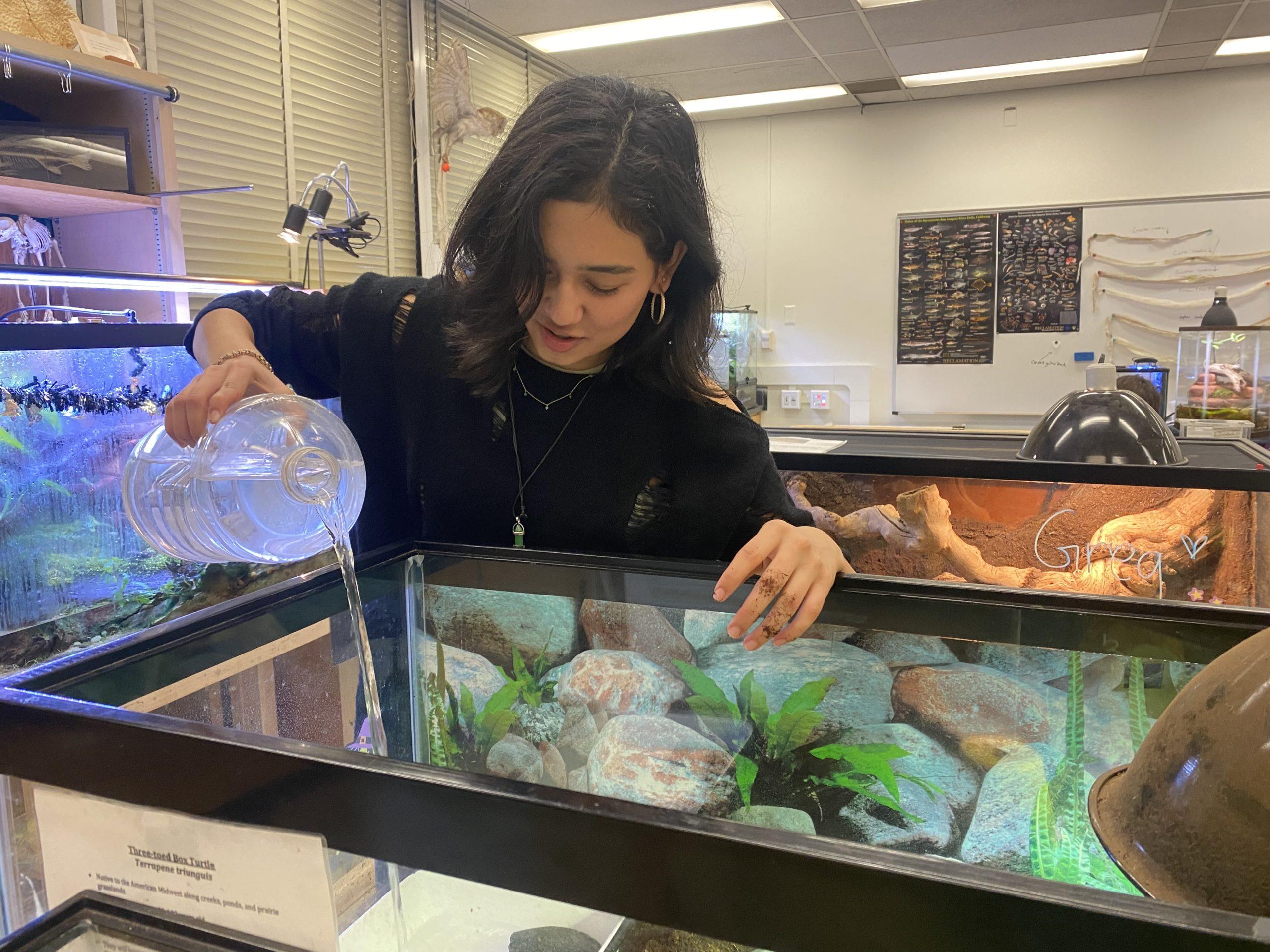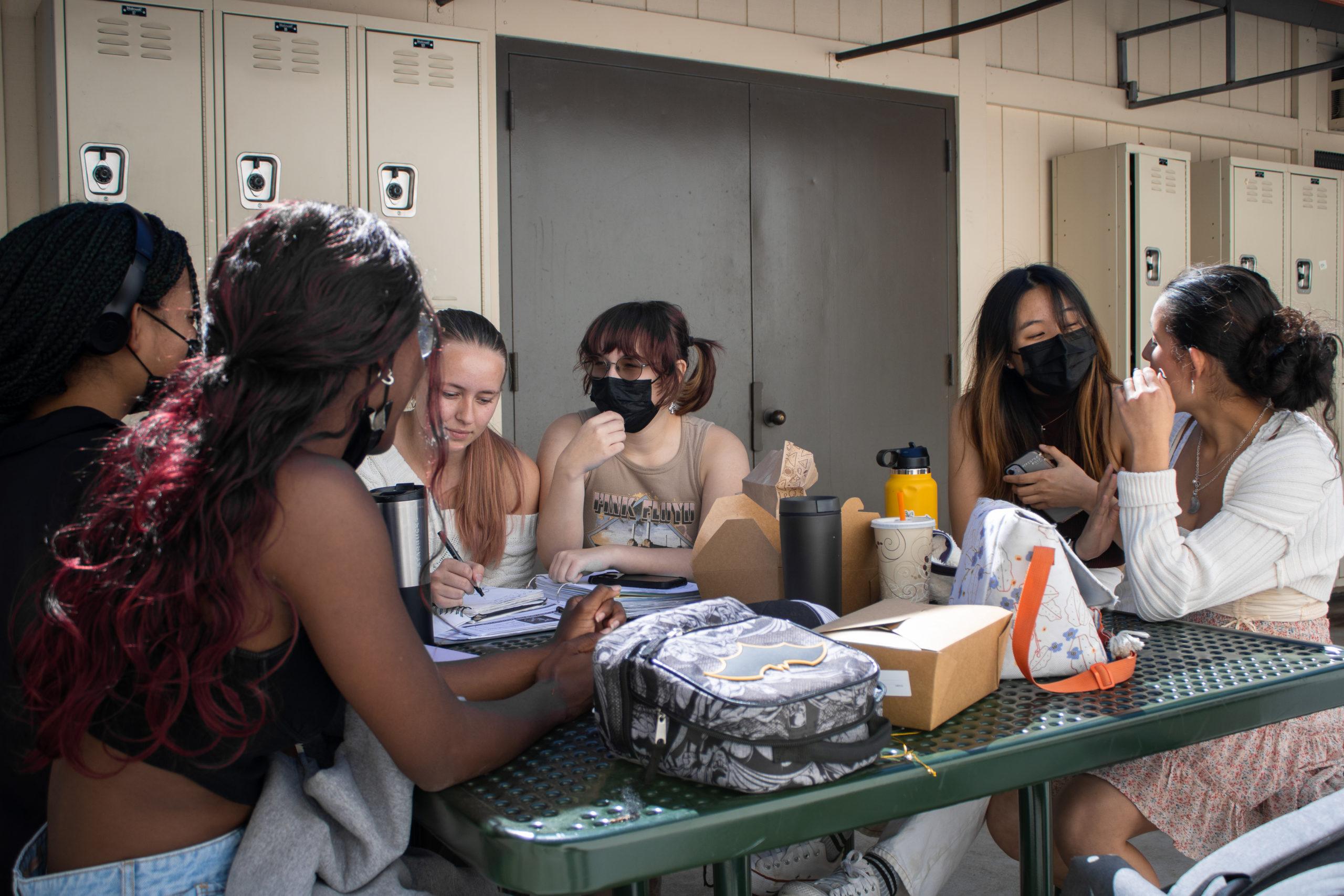Students alter behavior and language to adapt to different social contexts, a phenomenon known as code-switching. At Country Day, code-switching manifests itself both socially and academically, impacting relationships and mental health.
English teacher Jason Hinojosa defines code-switching as altering one’s behaviors or language to fit a given context. Similarly, senior Imani Cochran believes code-switching can be performed in various ways.
Is code-switching, inauthentic, or is it “just reading the room”?
“It’s not just behaviorally speaking — it’s how you present yourself, how you dress and even how you walk,” Cochran said.
Regardless of the manner in which it occurs, all people code-switch in some form, Hinojosa said.
“Code-switching is an inevitable reality of existing in a community and society,” he said.
At Country Day, this phenomenon manifests itself in both social and academic settings, and dramatically affects interpersonal relationships and health.
To sophomore Liam Donohue, it’s only natural that students act more casually around friends and peers compared to their teachers.
This isn’t necessarily a good or bad dynamic, Donohue said.
“As long as you’re doing what you’re supposed to and following social norms, it’s fine,” Donohue said.
Senior Mia Crowder often finds herself code-switching around different groups of people in an attempt to form connections or to fit in.
Crowder recognizes code-switching as an asset in forming friendships, as it allows her to connect with individuals with whom she may not share obvious similarities.
“I’m friends with a lot of people who aren’t necessarily super similar and sometimes I have a different sense of humor or different energy levels,” Crowder said.
Similarly, code-switching allows Cochran to adapt to interactions with various people.
“I talk to some people in certain ways and other people in different ways, and it’s not wrong. That’s just mutual comfortability,” Cochran said.
Cochran uses code-switching as a precautionary measure, deciding what is appropriate to say so that she does not unintentionally offend those around her.
For example, in her freshman year, Cochran recalls a joking response to a classmate’s comment backfiring.
“They all looked at me like, ‘Why did you say that?’ and I realized that I can’t act in certain ways around different people,” Cochran said.
In this way, Cochran finds code-switching to be a useful method for engaging with people effectively and respectfully.
Although students recognize the benefits of code-switching, they have also faced consequences from this practice.
For example, Crowder fears that when she relies on code-switching, her relationships are not being constructed on authenticity.
“If I know or I catch myself doing it, it leads me to feel less close to the people that I’m doing it for,” Crowder said. “I have thoughts of like, ‘Am I being fake right now, or am I just matching the energy of somebody else?’”
As a result, she feels more distant from individuals for whom she code-switches.
“There’s a line that can be crossed between your code-switch and going beyond to be like somebody else,” Crowder said.
In interactions where she considers her code-switching to be going overboard, Crowder worries that she will be perceived as ingenuine or insincere despite that not being her intention.
Conversely, when Crowder notices that she is not making deliberate changes in her behavior, she feels closer and more comfortable with the individual that she is interacting with.
“With different people, I find myself, not necessarily being someone I’m not, but kind of tapping into different parts of myself,” Crowder said.
While it can be jarring to see an individual alter their behavior, Crowder tries to remain compassionate, seeking to understand their perspective or reasons for code-switching rather than cast judgments.
For Donohue, code-switching and retaining one’s authentic self aren’t mutually exclusive options.
“It’s still you, just adapted to the environment,” he said.
As a teacher, Hinojosa’s relationship with code-switching at school tends to be different than how most students experience it.
“I’m certain that I observe it in class,” Hinojosa said. “But I don’t know that I’m observing it because 95% of my interactions with students happen in the classroom.”
Nonetheless, Hinojosa sometimes gets glimpses of different aspects of students’ identities in spaces or moments outside the classroom.
He also acknowledges the troubles and pressures students face to alter themselves in the classroom or socially.
“I think Country Day is not perfect, but is generally a place where people are welcome and encouraged to be their authentic selves,” Hinojosa said.
When students do bring their authentic selves to the classroom, Hinojosa finds that more robust discussions tend to occur.
Hinojosa encourages students to share their ideas and avoid censoring themselves — while doing so in a respectful way.
“The rules in a classroom are different from the rules outside the classroom. Without those rules, I think there is some latitude to express yourself sincerely,” Hinojosa said.
Although it depends on the situation, Crowder generally believes that code-switching allows people to succeed in professional or formal settings.
“For example, if you’re in a fancy business job, you might have to adhere to different rules or different standards from every day,” Crowder said. “Not necessarily that you can’t show your personality, but you have to develop different ways of fitting in.”
Cochran prefers to avoid relying on code-switching, especially in professional environments.
“It could seem like it’ll help, like, ‘Oh, if I speak this way, talk this way, I’ll get that sort of respect,” Cochran said. “But it can feel like you’re not being genuine, and usually people can see through that — they can tell something’s off.”
Although code-switching can be advantageous in professional environments, the mental toll that it can take outweighs the benefits, she said.
“You might be successful professionally, but it’s going to affect you mentally,” Cochran said. “You feel like you’ve got to step into this place and put on a mask — you’ve got to act.”
In addition, code-switching done in excess impacts Cochran’s self-perception and security with her identity.
This stems from pressure to fit stereotypes about her identity as a Black person and to perform a role that is expected of her, Cochran said.
“These past two years, I’ve not really been code-switching, but it really takes a mental toll, like, ‘What am I doing here?’” Cochran said. “I don’t really feel like I belong here when I can’t feel like I belong within myself.”
One way code-switching based on identity manifests itself in Cochran’s behavior is through her speech.
“I feel like I have to act or speak ‘properly,’” Cochran said. “But it’s not something that I usually think about — it’s kind of natural for me. I guess I’ve always been code-switching.”
Reflecting on the complexities of code-switching, Hinojosa recalls his own youth, a time when he often felt expected or demanded to assimilate to a dominant school culture.
This can be a difficult situation to navigate, and is something Hinojosa wishes was different for some students.
“If code-switching is that, the reduction or denial of someone’s true self, and they have to reduce or hide their true self in order to fit in, it can be hard,” Hinojosa said.
From personal experience, Hinojosa remembers more feelings of falsehood in his youth compared to the present day, where he is more comfortable with himself.
In his experience, code-switching can be accompanied by shame and similar emotions, especially when people involved believe they’re faking or altering themselves; however, he believes that it is not equivalent to phoniness.
“I push back on the idea that if you code-switch, you are not your authentic self,” Hinojoa said.
Through experience, Hinojosa has learned that himself and students can have multiple authentic selves.
He analogizes the adaptability of individuals to different environments to switching between walking and swimming in different mediums.
“When I’m in water, I don’t walk. When I’m on land, I don’t swim. That doesn’t mean I’m faking it in water,” Hinojosa said.
Hinojosa responds to the environment around him, and presents varied, but authentic versions of himself across social engagements and formal ones, like the classroom.
“All people code-switch all the time. We should respond to that with some sensitivity and compassion. We’re all navigating the context.”




